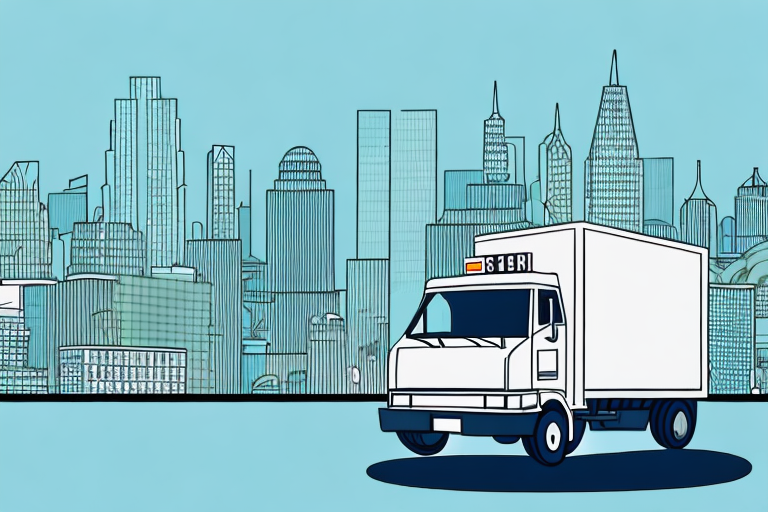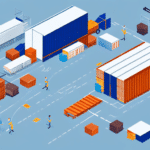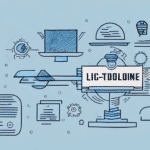Unlocking the Benefits of Last Mile Services
Last mile services are a critical component of modern businesses, especially for those in the e-commerce sector, where customer satisfaction is paramount. In essence, last mile delivery refers to the final stage of the supply chain, delivering goods directly to the end-user or customer. This final leg is pivotal not only for ensuring customer satisfaction but also for impacting the overall profitability and competitive edge of businesses.
Importance of Last Mile Services for Business Success
Enhancing Customer Satisfaction and Retention
Customer satisfaction is a cornerstone of business success. Efficient last mile delivery ensures that customers receive their orders promptly and in good condition, fostering trust and loyalty. According to a McKinsey report, 75% of consumers are more likely to shop with companies that offer reliable and fast delivery options.
Cost Implications and Profitability
The last mile is often the most expensive and complex stage of the logistics process, accounting for up to 53% of total logistics costs (ShipScience). Inefficiencies in this stage can severely impact a company's bottom line. Optimizing last mile delivery can lead to significant cost savings and improved profitability.
Competitive Advantage
Businesses that excel in last mile delivery can differentiate themselves from competitors. Offering faster, more reliable, and flexible delivery options attracts and retains customers who prioritize convenience and efficiency. This competitive edge is essential for long-term success in a crowded marketplace.
Environmental Impact
The rise of e-commerce has led to an increase in delivery vehicles on the road, contributing to pollution and congestion. By optimizing delivery routes and adopting sustainable transportation methods, businesses can reduce their carbon footprint and support environmental sustainability initiatives.
Evolution and Innovations in Last Mile Delivery
From Traditional to Modern Approaches
Traditionally, last mile delivery relied on manual processes, such as driver-run vans and paper-based tracking systems. However, the sector has evolved significantly with the integration of advanced technologies like GPS, telematics, and automated dispatch systems. These technologies enable optimized routing, reduce wait times, and enhance the overall customer experience.
Emerging Technologies: Drones and Autonomous Vehicles
Innovations such as drones and autonomous vehicles are poised to revolutionize last mile delivery. These technologies can significantly reduce delivery times and costs while improving safety and minimizing environmental impact. Companies like Amazon and UPS are actively exploring these alternatives, although regulatory and logistical challenges remain before widespread adoption can occur.
Sustainability in Last Mile Delivery
With growing environmental concerns, businesses are increasingly focusing on sustainable last mile delivery solutions. This includes the use of electric vehicles, optimizing delivery routes to reduce fuel consumption, and implementing recycling programs. Sustainable practices not only benefit the environment but also resonate with eco-conscious consumers.
Cost-Effective Benefits of Outsourcing Last Mile Services
Focusing on Core Competencies
Outsourcing last mile delivery allows businesses to concentrate on their core activities while relying on specialized service providers for logistics. This can lead to improved efficiency and better utilization of resources.
Reducing Overhead Costs
By outsourcing, companies can eliminate the need for significant investments in warehousing, transportation, and labor. Service providers often leverage economies of scale, resulting in lower operational costs for businesses.
Scalability and Market Expansion
Outsourcing provides the flexibility to scale delivery operations in response to fluctuating demand without the need for additional infrastructure. This is particularly advantageous for businesses looking to enter new markets or handle seasonal spikes in orders.
Enhanced Customer Experience
Professional delivery partners typically offer advanced tracking and analytics, ensuring timely and accurate deliveries. This leads to fewer missed or delayed deliveries, enhancing overall customer satisfaction and loyalty.
Enhancing Customer Satisfaction through Efficient Last Mile Delivery
Reducing Delivery Time
Efficient last mile services minimize delivery times through optimized routing and real-time tracking. According to a Statista report, 56% of consumers consider delivery speed a critical factor when choosing an online retailer.
Implementing Sustainable Practices
Using eco-friendly vehicles and optimizing delivery routes not only reduces environmental impact but also appeals to environmentally conscious consumers. Sustainable delivery options can enhance a company's brand image and attract a broader customer base.
Tracking, Analytics, and Technology in Last Mile Optimization
Real-Time Tracking and Data Analytics
Leveraging real-time data allows businesses to monitor their deliveries, optimize routes, and respond promptly to any issues. Advanced analytics can identify patterns and areas for improvement, leading to enhanced operational efficiency.
Driver Behavior Monitoring
Tracking driver behavior, such as speed, braking, and acceleration, helps identify inefficiencies and safety concerns. Providing targeted training based on analytics can improve driver performance, reduce fuel consumption, and minimize the risk of accidents.
Future Trends and Best Practices in Last Mile Services
Artificial Intelligence and Machine Learning
AI and machine learning are transforming last mile delivery by enabling predictive analytics, demand forecasting, and route optimization. These technologies facilitate data-driven decision-making, enhancing overall delivery efficiency.
Sustainability and Eco-Friendly Practices
The trend towards sustainability is driving the adoption of electric and hybrid vehicles, as well as innovative packaging solutions. Businesses are increasingly required to meet environmental regulations and consumer expectations for green practices.
Contactless Delivery Options
The COVID-19 pandemic accelerated the adoption of contactless delivery methods, such as locker systems and smart parcel boxes. These options provide safe and convenient delivery solutions, which are likely to remain popular in the future.
Managing Challenges and Overcoming Logistics Hurdles
Common challenges in last mile logistics include driver shortages, traffic congestion, and unpredictable weather conditions. Implementing optimized routing algorithms, investing in driver training, and utilizing flexible delivery models can help overcome these obstacles.
Effective Communication with Customers
Maintaining clear and timely communication with customers is essential for managing expectations and ensuring satisfaction. Providing real-time updates on delivery status and offering multiple communication channels can significantly enhance the customer experience.
How E-commerce Companies Can Benefit from Leveraging Last Mile Services
E-commerce businesses depend heavily on efficient last mile delivery to meet customer expectations and maintain a competitive edge. By partnering with specialized delivery service providers, e-commerce companies can streamline their logistics operations, offer faster and more reliable delivery options, and expand their market reach. Additionally, outsourcing delivery allows e-commerce companies to navigate the complexities of global supply chains more effectively.
Case Studies: Success Stories of Businesses Leveraging Last Mile Services
Several companies have successfully utilized last mile delivery services to enhance their operations:
- UPS: By investing in telematics and routing optimization algorithms, UPS has reduced delivery times and increased operational efficiency, resulting in significant cost savings.
- Amazon: Amazon has experimented with drone technology to deliver packages to remote areas, reducing delivery times and improving customer satisfaction. Their continued investment in logistics technology showcases the potential benefits of innovative last mile solutions.
These examples highlight how strategic investments in last mile delivery can lead to improved efficiency, cost savings, and enhanced customer experiences.
Conclusion
Last mile delivery services are indispensable for modern businesses aiming to stay competitive and ensure customer satisfaction. By optimizing last mile operations through technology, outsourcing, and best practices in logistics management, companies can offer faster, more reliable, and cost-effective delivery services. As the sector continues to evolve with advancements in technology and shifting consumer expectations, businesses must remain agile and adopt emerging trends to maintain their edge in the marketplace.




















